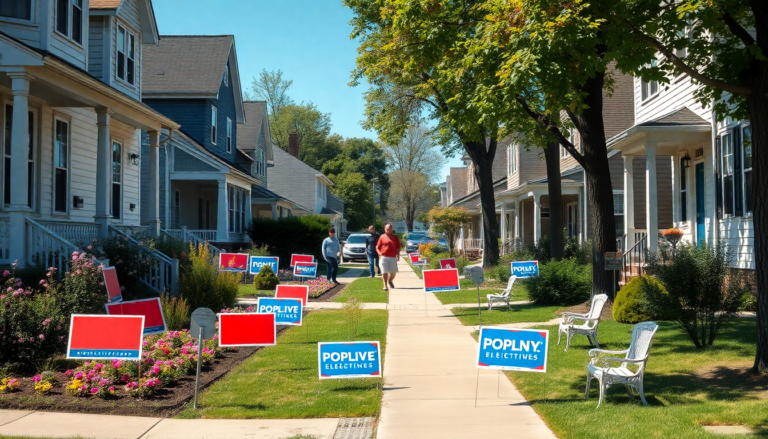Argomenti trattati
The real estate landscape can be quite the maze, influenced by factors that often go beyond just the physical attributes of a property. One intriguing element that’s gained traction in recent years is the political climate of neighborhoods. As our nation becomes increasingly divided, the sight of political signs can unexpectedly impact how potential buyers perceive the value of homes for sale. So, how can homeowners leverage this knowledge when preparing to sell?
Political Signs and Neighborhood Dynamics
From my experience at Google, it’s clear that data tells a compelling story about how external environments shape consumer behavior. When it comes to selling a home, the visibility of political signs can create a vibe that might turn off prospective buyers. Real estate experts often advise sellers to keep a neutral stance—not just inside their homes but also in how they present their properties to the outside world. Yet, this becomes tricky when neighbors prominently display their political affiliations with yard signs or bumper stickers. Can you imagine the mixed messages that sends?
Shaun Lewis, the CEO of Clearwater Properties, shares a valuable insight: timing your home listing during politically charged periods, like election seasons, can be make or break. He cautions sellers to be mindful of local, state, or national elections, as these moments can ramp up tensions in communities. Picture this: buyers driving through neighborhoods, encountering politically charged displays that make them feel uncomfortable. Wouldn’t they think twice about viewing a property they might have otherwise loved?
The Impact on Home Value and Buyer Perceptions
While it’s tough to pin down the exact effect of neighboring properties on your home’s value, a study by the Appraisal Institute found that “bad neighbors” could decrease property values by as much as 10%. This includes factors like noise or poor maintenance, but politically charged displays could have an even deeper impact—potentially scaring buyers away entirely.
Tanya Gradet, a Los Angeles real estate agent, recalls a telling incident: her clients discovered a home that ticked all their boxes but chose not to make an offer simply because of the neighbor’s overt political signs. This real-life scenario underscores the direct influence these displays can have on buyer sentiment. Gradet strongly advises her clients to remove any political signs when selling, stressing that the previous owner’s beliefs shouldn’t overshadow a property’s appeal to new buyers.
Understanding the Community Through Political Signs
Interestingly, while political signs can act as deterrents, they also offer a glimpse into community dynamics. Lewis notes that signs advocating for or against local issues can reveal the community’s underlying concerns. For example, a surge of anti-short-term rental signs might indicate rising tensions about tourism and housing costs. On the flip side, signs supporting school bonds reflect a community’s commitment to education and a willingness to invest in it through taxes. Isn’t it fascinating how much a simple sign can convey?
In today’s marketing landscape, understanding the customer journey is crucial. Just as buyers evaluate a neighborhood’s political climate, they also assess the community’s values through visible signs. Therefore, creating a welcoming atmosphere can significantly boost the marketability of any property.
In summary, when gearing up to sell a home, it’s vital to consider the broader political climate of your neighborhood. Political signs can heavily influence buyer perceptions and potentially affect home values. Sellers should take the initiative to evaluate their surroundings and make informed choices about listing timing and property presentation.
Ultimately, the aim is to foster an inviting environment that appeals to a diverse range of potential buyers, ensuring that personal beliefs don’t inadvertently complicate the selling process. By grasping these dynamics, homeowners can navigate the complexities of the real estate market, even in a politically charged atmosphere. Are you ready to take that leap?

